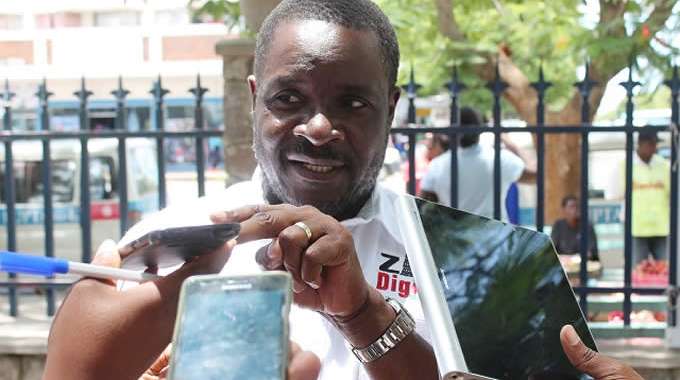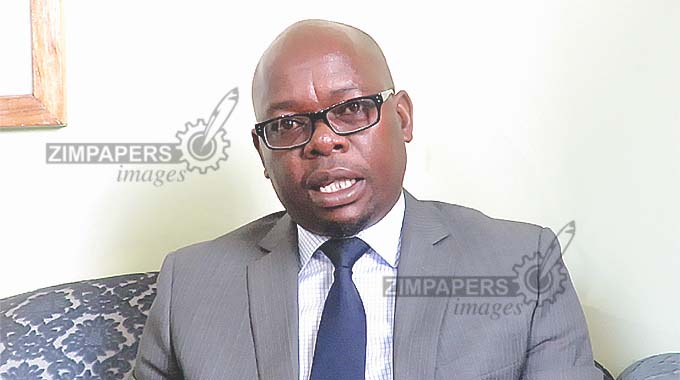Govt clarifies issuance of new broadcasting licences

Tendai Mugabe Senior Reporter
The Broadcasting Authority of Zimbabwe (BAZ) has not issued new licences, but has registered service providers with existing licences and who in any case enjoy freedom of establishment in terms of the Constitution. Magwegwe legislator Anele Ndebele (MDC-Alliance) told Parliament recently that BAZ illegally issued broadcasting licences to Econet Wireless, Zimpapers and Alpha Media Holdings in the absence of a substantive board.
Immediate-past Secretary for Information, Publicity and Broadcasting Services Mr George Charamba yesterday clarified the matter, saying registration was mere clerical work that did not require the existence of a board.
“Direct to Home (DTH) is basically a service which is based on satellite and therefore does not use frequencies,” he said.
“We also have video on demand and these rides on frequencies except in most of the cases these are frequencies already issued out by the Postal and Telecommunication Regulatory Authority of Zimbabwe.
“Webcasting, again that is another frequency using service, but riding on an already issued frequency again from Potraz. The relevance of BAZ in respect of distribution licences which are really direct to home, as well as services that ride on services which are of a telecommunications nature, is insofar as the material which is being transacted is audio visual.
“Now, Section 61 sub-section (3) of the Constitution gives broadcasting and other electronic media of communication freedom of establishment subject ‘only to the State licensing procedures.’
“Categories which are in question — DTH, webcasting and video on demand — either do not require frequency regulation or if they do, they are already being asked for by body corporates who already hold licences from elsewhere and in this case elsewhere is Potraz.
“For example, TelOne was licensed on the strength of a licence which they already have by virtue of being a telecommunications operator. Zimpapers have service providers who are already licensed and similarly Alpha Media Holding in terms of the category of the licence we gave it, rides on the backbone of licensed service providers, which means essentially the element of regulation of airwaves falls away.
“When the issue of regulation of airwaves falls away, it means what some people are mistakenly calling licensing is in fact just a registration of these service providers who in any case and in terms of the Constitution, already enjoy a freedom of establishment.
“Now, registration of services that are either already licensed or that are already riding on licensees or services that don’t ride on frequencies does not require a board because it’s essentially clerical.
“In fact, the real risk is that if such a request is made to BAZ and BAZ defers on grounds that it does not have a board in place, you will then have litigation as happened to Dr Dish and we now know the disposition of the Bench, but we also know the dictates of the constitution.
“So, the issues that were being raised by the Member of Parliament do not arise.”
Mr Charamba said it was surprising that suddenly Government was being accused of usurping powers of BAZ, yet the agitation was that it was monopolising airwaves.
“We find it very strange that the agitation has been that we are entrenching a monopoly in the broadcasting sector,” said Mr Charamba.
“Suddenly, we are opening the airwaves within the limits of the Constitution and the law then there is another outcry that you are usurping powers of BAZ. No we are not. Really, they should make up their minds on exactly what do they want.
“Do they want free airwaves as backed by the law or they want excuses which are not sustainable at law to retain a monopoly. The disposition in the ministry is that we will rather within the limits of the law open airwaves.”
Mr Charamba said it was important for Members of Parliament to call the ministry officials for briefs on issues they were not clear.
With regards to the constitution of the BAZ board, Mr Charamba said: “The issue of the constitution of BAZ board has to be understood that it goes beyond Standing Rules and Orders Committee. The SROC only provides six candidates out of which three board members are selected.
“The BAZ board is larger than three, I think it must be around 11. There are many other categories of board members wielding different skills or qualifications who have to be brought on board and outside of the SROC activity.”
Mr Charamba said given that there was now a substantive Minister, a substantive Deputy Minister and a new Parliament the current SROC should be allowed to endorse or do fresh interviews.









Comments